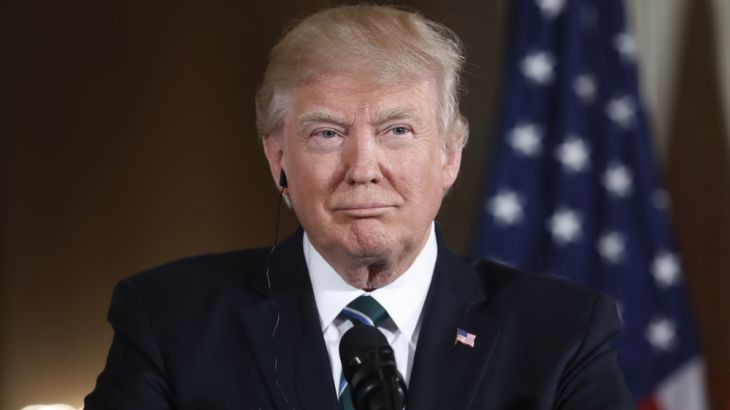
Assessing Donald Trump’s budget proposal
If approved, Trump’s budget plan would increase military spending while 18 other agencies will experience budgets cuts.
It has been a busy few days for the US economy as President Donald Trump unveiled his first spending plan. It proposed sharp spending increases in some areas, coupled with stark cuts in others. All of this is taking place as the Federal Reserve raised its benchmark interest rate by a quarter of one percent, only the third time that this has happened in the last decade.
Russell Jones, an economist and partner at Llewellyn Consulting in London, offers his take.
Keep reading
list of 4 itemsWhy are nations racing to buy weapons?
Parallel economy: How Russia is defying the West’s boycott
US House approves aid package worth billions for Ukraine, Israel
”[Trump’s
smacks of Reaganomics back in the 1980s with a large increase in defense spending and hefty cuts for programmes which are designed to help the poor.”]
There are big winners and big losers in Trump’s first budget plan – if approved by Congress. Military spending would increase by nine percent to $54bn, while 18 other agencies will experience budgets cuts.
For instance, the Department of State could see its budget fall by about 28 percent, which would have big international implications – impacting the funding of foreign aid, the UN and peacekeeping missions.
International efforts to tackle climate change could be dealt a blow with the Environmental Protection Agency losing over 30 percent of its budget.
Domestically, programmes that aid the poor and unemployed, as well as funding for the arts, sciences, healthcare and infrastructure, could be stripped of huge sums of money.
It’s worth remembering that Trump’s proposal is only a partial picture of the budget, says Jones, “it only applies to a quarter of federal spending.
“But this plan is potentially quite a transformation. It is a very conservative budget, rather than populist budget. In fact, in many ways, it smacks of Reaganomics back in the 1980s with a large increase in defense spending and hefty cuts for programmes which are designed to help the poor.”
The full effect of Trump’s budget plan on the US economy are still unknown until considerations on tax reform, healthcare, infrastructure are made clear, says Jones.
Also on this episode of Counting the Cost:
Saudi-US ties: US President Donald Trump took out the White House’s silverware for Saudi Arabia‘s powerful Deputy Crown Prince Mohammed bin Salman this week. They discussed various issues of mutual interest and concern including Iran, oil, arms and investment. It was the first visit by a GCC leader to the White House, since Trump took office.
John Sfakianakis, director of economic research at the Gulf Research Center gave us his perspective from Riyadh.
Brexit: The British government and Brussels are preparing for what is likely to be an epic negotiation on divorcing the UK from the European Union. A deal must be reached within two years, but already unforeseen hurdles are being thrown in front of Prime Minister Theresa May. The unity of the United Kingdom itself is under threat and she is facing growing impatience from within her own party. Jameel Ahmad, chief market analyst at FXTM discusses the strains and stresses on business, as well as the UK itself.
Netherlands elections: In the Netherlands, the centre-right VVD–led coalition won the general elections. In the end, Prime Minister Mark Rutte soundly beat the protectionist populist Geert Wilders’ PPV party, where anti-European Union and anti-immigration sentiment dominated the campaign. Many believed that the Dutch electorate would be the next to ruthlessly upset the liberal order that has dominated the West for decades. But it was not to be.
Karel Lannoo, CEO of the Centre for European Policy Studies discusses what the implications are for the rest of the continent.